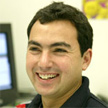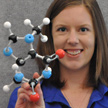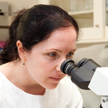Keywords: profile
Comments
-
commented on 14 May 2012:
Interesting. Many of these “game” based areas of research will or are already having effects in biological and ecosystem modelling. Agent based models like Invitro and Atlantis describe how we think the world works but people like Yusuf provide insights into how best to do that. So “gaming” is not just for pownzing virtual orcs but also real science. Go Yusuf!
1) http://www.publish.csiro.au/paper/MF09154.htm
2) http://www.csiro.au/Organisation-Structure/Divisions/Marine–Atmospheric-Research/Atlantis-ecosystem-model.aspx -
commented on 14 May 2012:
A recent big success I really like is FoldIt http://en.wikipedia.org/wiki/Foldit where gamers solved a problem in 10 days that had been puzzling scientists for 15 years!
-
commented on 14 May 2012:
Go crowd-sourcing!!! Getting everyday people to contribute to the problems facing the world today.
-
commented on 15 May 2012:
FoldIt is awesome! It’s awesome to see so much citizen science going on: SETI@home project (http://setiathome.berkeley.edu/), GalaxyZoo (http://www.galaxyzoo.org/) are others I’ve come across. I love that projects such as these mean everybody can be a scientist and contribute to scientific knowledge.
-









How can we generate a map, a game level, automatically to suit player’s ability and interests? If somebody likes fighting, they should get more monsters to fight while others who like puzzles should get more puzzles.
How can we get the NPCs (non-playing characters) to act and talk just like your friends do, so they are valuable companions to you along the way?
How can we automatically detect if the user is having fun while playing the game? Can we build in some automatic ways to change the gameplay to make it more enjoyable?
Can we use Kinect, a piece of game technology, to measure how stable old people are when they are standing up so they do not have to go to the doctor to have their level of stability checked?
Can we build games that are clever enough to argue with you clever enough to let you model alternative what-if scenarios?
What kind of people play World of Warcraft (or any MMO), can we classify them and determine if the balance of users is skewed which would lead to the game environment not being fun?
What would it take for a computer to play a drawing game with you where the computer tries to guess what you are drawing and you try to guess what the computer is drawing?
Lots and lots of questions…
🙂
0